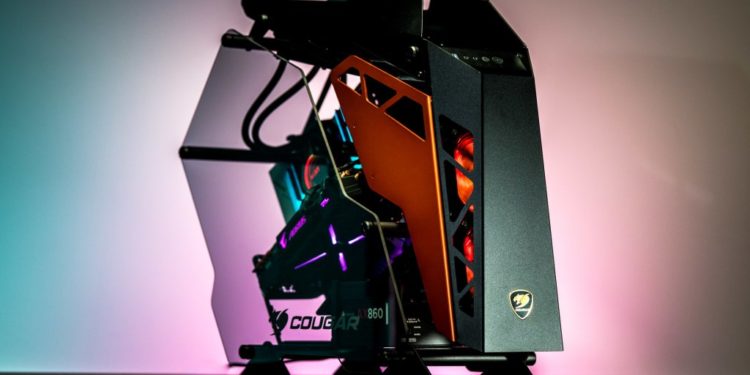Ask a bunch of random gamers what the best console is, and you’ll find no consensus. Each of these devices has its own benefits and drawbacks. It’s never “one size fits all.” Consoles tend to be expensive and quickly become obsolete when a new model comes out. This disadvantage further complicates things.
As a result, numerous gamers are turning to the versatility of purpose-built gaming computers. These specialized PCs support a wider variety of games than consoles. As gaming technology evolves, users can upgrade their devices without needing to purchase a brand-new machine. The only downside is that the initial investment can be daunting, as it’s often over $1000.
Building Your Own Gaming Computer
Luckily, gamers with a DIY attitude can get hands-on and easily build their own custom machine for a fraction of the price. In this article, we’ll give you a quick rundown on the components you’ll need to successfully create a functional gaming computer. However, you’ll still want to consult the assembly instructions. Our goal here is only to help you better understand the pieces you’ll need and their purpose.
A Roomy Case
To get started, the first piece that you’re going to need is a PC case. We’re talking about the shell that contains and protects all of the electronic components. Many gaming-specific covers have aggressive designs, transparent panels, and lots of interesting color options to choose from. However, none of these features affect the computer’s performance.
The only consideration that you need to keep in mind when choosing a case is the size. Having extra space inside it is the name of the game, as you’ll have the freedom to add more components later on. A larger case will also give you more room for your hands to move and work during the building process.
The Right Motherboard
You’ll need a piece that connects all of the other components. That’s the purpose of the motherboard. Still, you don’t want to get the absolute cheapest one on the market. Ultra-budget motherboards typically have few or no expansion slots for additional graphics cards, sound cards, and cooling systems. Pick one that allows you some customization options, but don’t spend more than $150.
A Fast Processor
This piece is critical in your DIY computer’s performance. You might as well spend a few extra dollars on it when building a gaming PC. The processor is basically your machine’s brain. As a gamer, you’ll need a computer that can think fast. The number of cores determines the processor’s speed, ranging from as little as two to as many as sixteen. For gaming purposes, you’ll want a processor with at least six cores.
A Good Graphics Card
Want a sleek gaming experience? Then, your graphics card is worth dropping some money on, too. This component allows your computer to smooth out the pixelated look that older games tend to have and display lifelike high-resolution graphics. There are many factors to consider when picking the right graphics card, but whatever choice you go with, make sure that it supports at least 1080p resolution. Expect to pay upward of $200 for a decent graphics card; it should be the most expensive computer component.
The Hard Drive
You’ll need a hard drive with at least 500 GB of memory, so it has room for your operating system with memory to spare for games. A traditional hard drive is the best option on a budget, but if you’re willing to spend a few extra bucks, you’ll find that Solid State Drives are much better for gaming applications. SSDs are exponentially faster and allow games to load in a matter of seconds.
RAM requirements
Some computers have as much as 64 GB of RAM, which is overkill for our purposes. For gaming, you’re not going to use more than 32 GB, so save your money here and put it towards a better graphics card or a larger SSD.
Power Supply
You don’t need a gaming-specific energy supply. It just has to be the right wattage to support all your components. Choose all of your other parts first, then enter them into a power supply calculator to determine the correct wattage for your new PC.
Have Fun!
If you follow these basic guidelines, you should be up and running with a custom gaming computer in no time. However, if you’re not quite ready to invest in a gaming-specific PC, you’ve still got some options for having fun with your current computer.
The internet is brimming with simple games that can be played right within the web browser on nearly any computer. Some of them even offer you the chance to make a buck through virtual betting and online casinos. Check out https://goodluckmate.com for a guide to the best of these websites.


